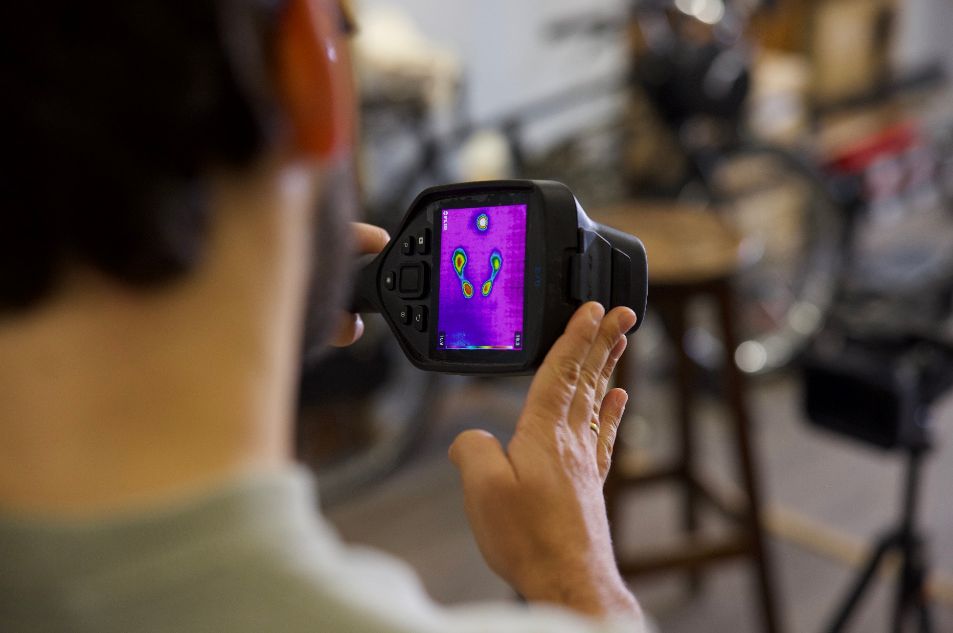A ground breaking partnership between the British Heart Foundation (BHF) and NHS England West Midlands is helping to save lives, after identifying more than 100 people who have a life-threatening inherited condition.
Familial hypercholesterolaemia (FH) is a genetic condition that causes abnormally high cholesterol, which leads to coronary heart disease and can cause a potentially fatal heart attack at a young age. If someone carries a faulty gene – and therefore has FH – then there is a 50:50 chance that they will pass it on to each of their children.
The BHF estimates that up to 260,000 people in the UK have FH, but as many as 94% remain undiagnosed. It is believed that around 23,000 people are living with the condition in the West Midlands region alone.
In order to identify those with the condition, NHS England (West Midlands) and the BHF joined forces with the region’s Clinical Commissioning Groups (CCGs) to launch the West Midlands Familial Hypercholesterolaemia Service (WMFHS).
It now means that if someone living in the West Midlands has unusually high cholesterol and a family history of early onset coronary heart disease, their DNA can be tested for faulty genes known to cause FH. If one is found, then their immediate family can be contacted to see if they want to be tested. Likewise, those who are unfortunate enough to have developed coronary heart disease at a young age can be screened for FH where appropriate.
Since its launch last year, the team have received in excess of 1,5001 referrals from GP practices and consultants and have carried out 7201 genetic tests, leading to 1311 patients being diagnosed with FH, including some children.
By identifying those who have FH, the service has been able to check for the condition in relatives too, with 371 positive family cascades.
Amie Burden, from Willenhall in Wolverhampton, was the first person in the Black Country to be diagnosed with FH through the new screening service. She was 12-years-old when her father Philip, now aged 61, suffered two heart attacks and required a quadruple heart bypass. Later that year, a blood test picked up that Amie’s cholesterol levels were abnormally high.
Amie, now aged 30, said: “I was told that I had probably inherited this but at the time, it couldn’t be confirmed it was FH. It was hard to cope with, because back then no-one knew what was wrong with me and I didn’t know of anyone else who was my age and had the same condition. For years, I was monitored and was also placed on a low-cholesterol diet.
“I was referred to the WMFHS and was tested for FH just before Christmas last year. In the back of my mind, I knew that the test would come back positive. When I got the phone call in January, I wasn’t shocked at all. I was relieved I had been diagnosed, but was also concerned as I was told that my family would also need to be tested for it too.”
Amie’s parents were tested through the service in the summer and it was her father’s test that came back positive. When the paediatric arm of the WMFHS service was launched, Amie’s son, Coby (8) was also tested for the condition.2
Amie, who works as a pharmacy dispenser, added: “I was so worried that Coby had inherited the condition from me. Four weeks after his test, I received a phone call with the results and was told that he didn’t carry the faulty gene. I was so relieved.
“I started treatment for FH in March. Living with FH is tough as I live with the anxiety that I will have a heart attack at a young age. However, thanks to the WMFHS, I have now been given the best treatment I could get and my cholesterol is at the lowest it has ever been.”
The BHF awarded a grant of £375,000, which funds five nurses to provide testing across the region for two years. The region’s CCGs have committed to then continue to fund this much-needed service. The collaborative service accepts referrals from all 700 GP surgeries in the West Midlands.
Paul Stern, BHF’s Health Service Engagement Lead for the West Midlands, said: “FH is commonly known as a hidden killer, as the majority of people with the condition are undiagnosed and at risk of a potentially deadly heart attack.
“But it doesn’t have to be this way, as treatment to prevent heart attacks is straightforward once the condition has been identified. FH is a manageable condition, and those with it can be prescribed cholesterol lowering drugs and are advised to lead a healthy lifestyle to keep their cholesterol as low as possible.
“We are committed to finding people with FH so that they receive the right treatment to achieve a normal life expectancy. Thanks to a collaborative effort between multiple partners, the WMFHS has been instrumental in doing that.”
Professor Kiran Patel, Medical Director at NHS England West Midlands, said: “NHS England in the West Midlands is thrilled to see the impact this trailblazing service is having on patients and families. It has been a real collaborative effort, working to improve care for those with or at risk of cardiovascular disease.
“It’s going from strength to strength, and with the launch of the new paediatric arm, we hope it will have a real impact on preventing heart disease and heart attacks for future generations too.”
Elaine George, BHF’s Clinical Programme Manager for the WMFHS, added: “We have received very positive feedback from patients and their families who have used the service to date. The FH family cascade and paediatric screening means that FH can be diagnosed across the generations, with all able to live normal lives once they receive the right treatment.”
The WMFHS team is based at the Queen Elizabeth Hospital Birmingham, part of University Hospitals Birmingham NHS Foundation Trust (UHB), but operates in GP practices across the region.
Research funded by the BHF helped develop the science used to detect the genes that cause high cholesterol, and the treatments we now use to control cholesterol levels. The charity has funded further programmes to introduce cascade testing for FH into the NHS to identify more people at risk.
If you have a family history of premature heart disease or sudden death in the family, and suspect that you might be at risk of having an inherited heart condition, please contact the BHF’s Genetic Information Service on 0300 456 8383.















